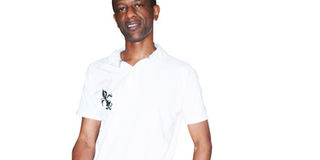Software engineer solves financial inclusion dilemma

Ivan Mworozi and two other co-founders created an app that allows SACCOs to track their financial transactions.
What you need to know:
Ivan Mworozi and two other co-founders created an app that allows SACCOs to track their financial transactions. Eronie Kamukama found out how the business is growing.
Monica Rwamunahe observed glitches in her savings and credit cooperative association in rural Rukungiri.
Her story on how the Sacco money was misused gave her son, Mr Ivan Mworozi an idea on how to take savings collection to a whole new level.
“Sometimes, someone would lose the money since they would take turns keeping the money. One time, one of the ladies got in an argument with her husband and he took all the money,” Mr Mworozi explains.
He then thought: “Why don’t I just digitise this whole thing?”
That was the beginning of Akiba, a startup that aims at making finance collective. Akiba grants people the tools for practical and transparent management of their finance.
But where had he polished his skills to do this kind of innovation? The 34-year-old reveals he graduated in 2004 with a Bachelor’s degree in Computer Science from Iowa State University in the United States of America.
He worked with NSA, an IT firm in Las Vegas. There, he did programming and software development for eight years.
Unfortunately, the economy in Las Vegas went into recession in 2011. This was devastating for a town that thrives on the tourism industry as visitor numbers dwindled. The crisis forced Mr Mworozi to return to his home country in 2012.
“I still had a job. I had just turned 30 and was adventurous. I decided to move to Uganda,” he recalls.
Starting Akiba
On return, he worked with his family for about eight months as he tried to understand how Uganda works. In January 2013, he got a job at Mcash, a cashless mobile finance company in Uganda until May 2015 when he quit.
By then, he says he had met one of the cofounders of Akiba and he realised they had some common perspectives on how financing works.
The three-man group that also comprises of Alex Berthaud and Gildas Michaud had mutual experience in financial technology and has lived in both third world and developed countries, so understood how financial payments in the third world work.
“In the third world, culture plays a big role in finances than in the first world. In the third world, people think about finance collectively,” Mr Mworozi says.
To take off, the group received a grant from a Swiss Foundation worth $350,000 (about Shs1.2b).
Akiba’s major objective would later on allow SACCOS to use their social circles to easily achieve their financial goals. But first, lessons were learnt.
The group partnered with the Post Office in Benin to digitise savings. Initially, the Post Office was helping people to save. Its agents would collect money from people and record in books. The group made an App that kept records of all the transactions so people could track all details on their phones.
At the start of Akiba, Mr Mworozi’s role was to develop the software while his two cofounders looked for potential partners and did non-technical groundwork. He admits that the Benin project gave him a lot of expertise on how money moves in the informal sector.
He says entering the market has not been smooth because of limited trust among people. He says such trust has to be bought yet startups hardly have money for advertising.
Issues
He notes that the challenges financial technology faces in the Ugandan market are unique. It has been hard to penetrate because the number of people using smart phones is still low.
This has pushed him to make an app and USSD code to accommodate non-smart phone users. This process has to be delivered at a high cost.
“In Uganda, if you want to do USSD, it is a very complicated process. You have to go through an aggregator and the end users are charged to use the USSD if they are for instance on MTN,” Mr Mworozi says.
He says if Akiba is trying to help a group saving less than Shs100,000 and every member contributes Shs20,000, if there is a USSD
Tips for success
Find out if anyone wants to use what you make. Do this quickly and cheaply. You should also be willing to fail because then you are willing to fix what is not working.
How Akiba works
The code
Using a USSD code for instance by dialing *131*1#, a boda boda man can form a group that will contribute a certain amount of money. Potential members dial the same code to join. The system automatically reminds members on the date of collection, after which money is automatically sent from MTN mobile money or Airtel money to the group’s account. The group leader decides who takes the money. Once a member receives the month’s collection, all group members are notified by SMS. The App, however, involves a bidding system where the highest bidder takes the money. This money is paid to members as an interest.
Achievement
The business has launched the platform in two different markets at the same time. Akiba is also functional in Mexico.
Akiba emerged the best business startup in Uganda during the Seedstars World startup competition in Uganda this year. He says this has exposed Akiba to potential partners and enabled them to form vital networks with other startups. Since its launch six months ago, the clients have increased to 400.
Turnover
Mr Mworozi says their current turnover is Shs15m.
Future plans
Mr Mworozi hopes to Akiba will bridge the financial gap between informal and formal sector.




